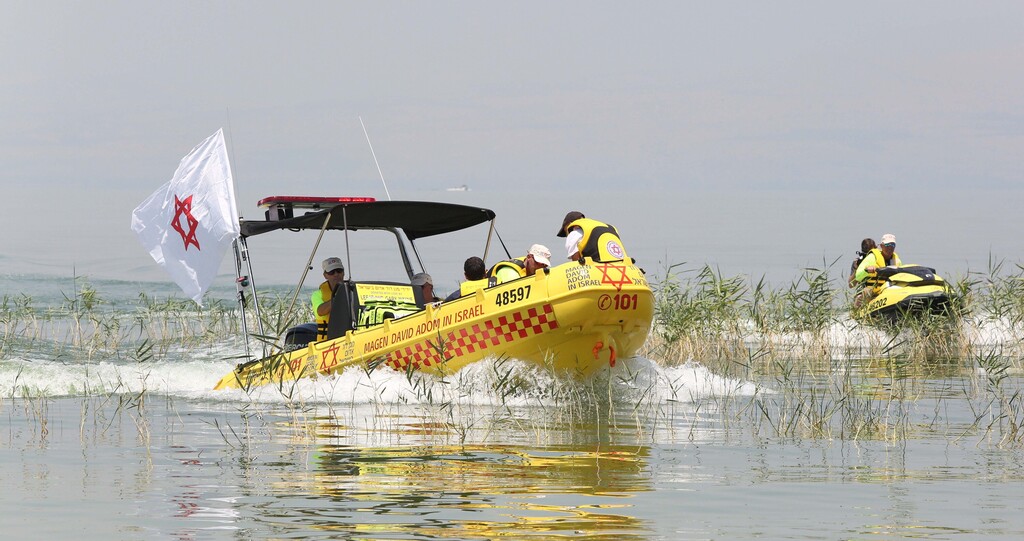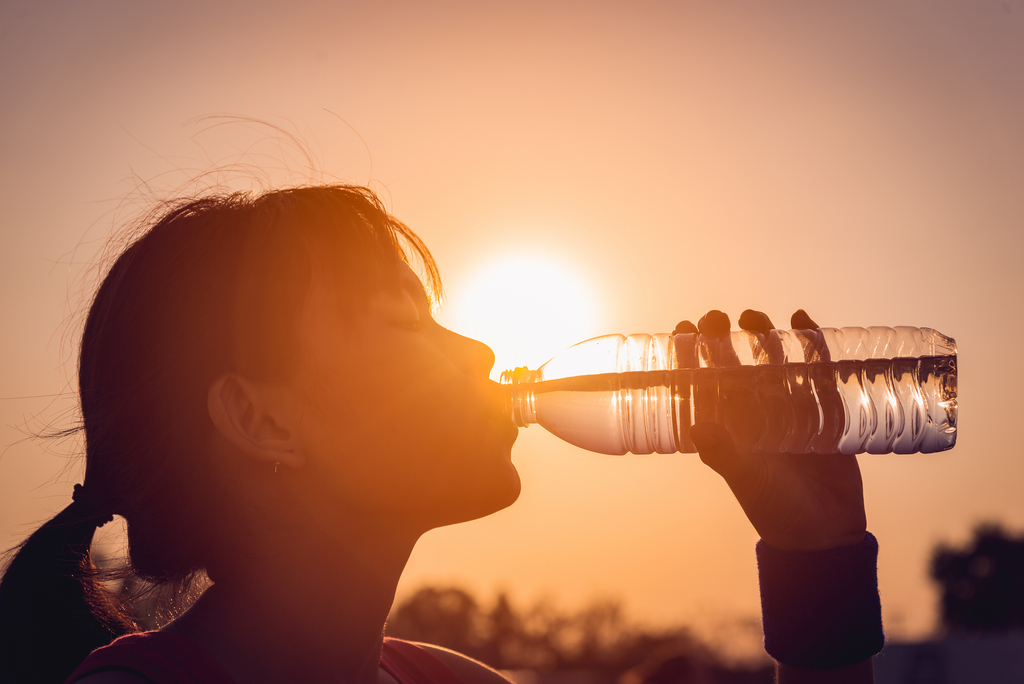The extreme heatwave that hit Israel this week was expected to reach its peak Monday, with temperatures reaching above 40 degrees Celsius in some areas of the country.
This kind of extreme weather is typical during the transition between seasons, and usually hits Israel during April and May.
2 View gallery


Magen David Adom rescue personnel patrolling the Sea of Galilee on Monday as Israel endured a massive heatwave
(Photo: Magen David Adom)
Monday was expected to be the hottest since the start of spring, with temperatures ranging from 35 to 44 degrees Celsius in most areas.
The heatwave was expected to ease by Thursday, followed by a gradual increase in temperatures as the country moves into the summer season.
Magen David Adom emergency service advised Israelis to drink plenty of liquids and avoid outdoor exercise. People more sensitive to the weather, such as pregnant women, those with respiratory diseases and the elderly were advised to remain indoors.
Such a heavy heatwave brings many health hazards, some of which develop without warning signs.
The greatest danger is heatstroke, which affects those who spend long hours outdoors in such weather and happens when the body's heat regulation mechanisms are impacted, and the body is unable to cool itself by sweating.
Heatstroke normally occurs when the temperature outside exceeds 32 degrees Celsius in the shade and humidity is high.
It causes a chain of dangerous events in the body and can quickly become life-threatening.
2 View gallery


Illustrative: Magen David Adom emergency service has advised Israelis to drink plenty of liquids and avoid outdoor exercise during the heatwave
(Photo: Shutterstock)
The sun also emits radiation that is dangerous to the skin and eyes.
It can potentially cause irreversible damage to the eyes, from sunburnt corneas to eyelid cancer and cloudy lenses also known as cataracts, which is the cause about half of the cases of blindness in the world.
Israel ranks second in the world for skin cancer and has seen a 20% increase in the number of cases in recent years.

